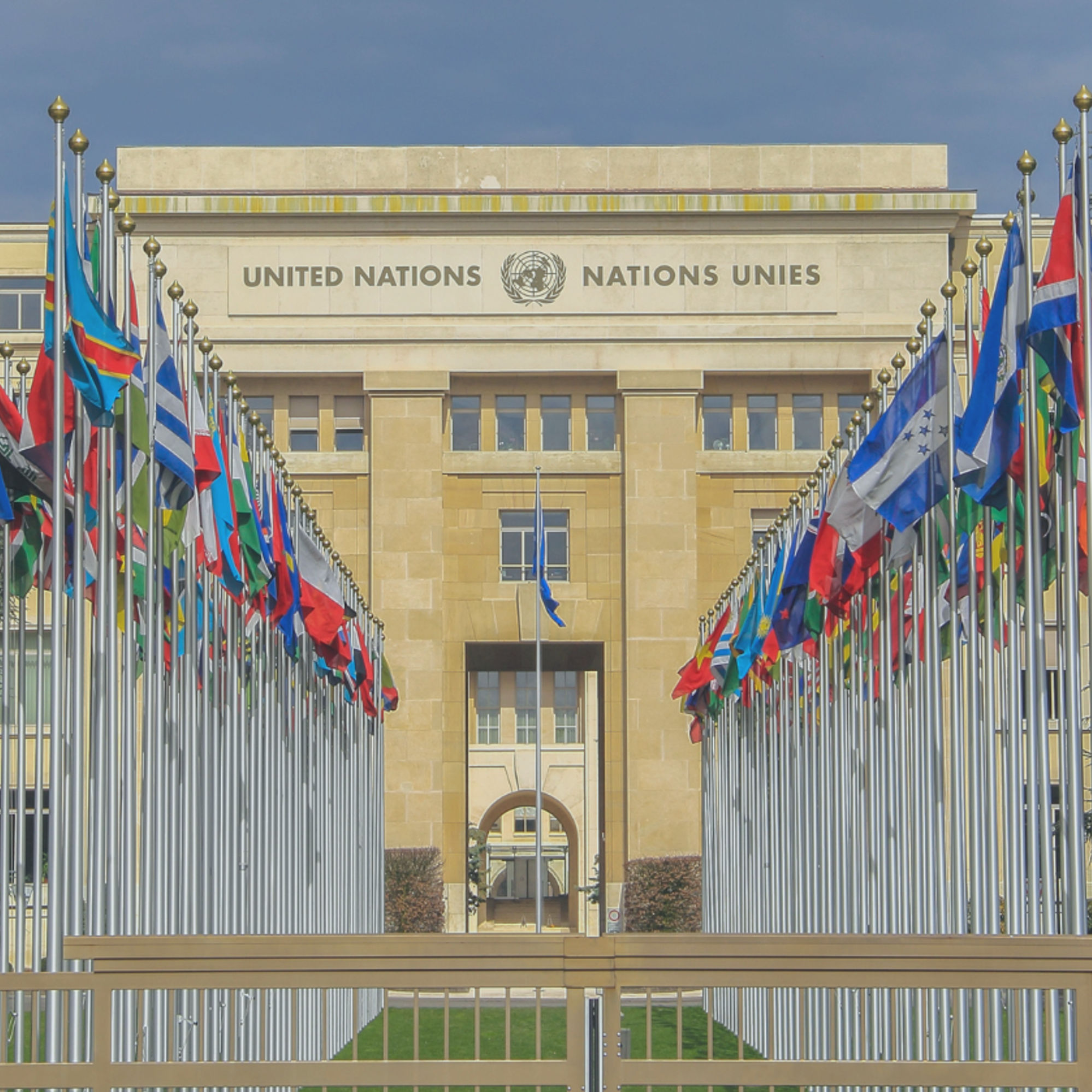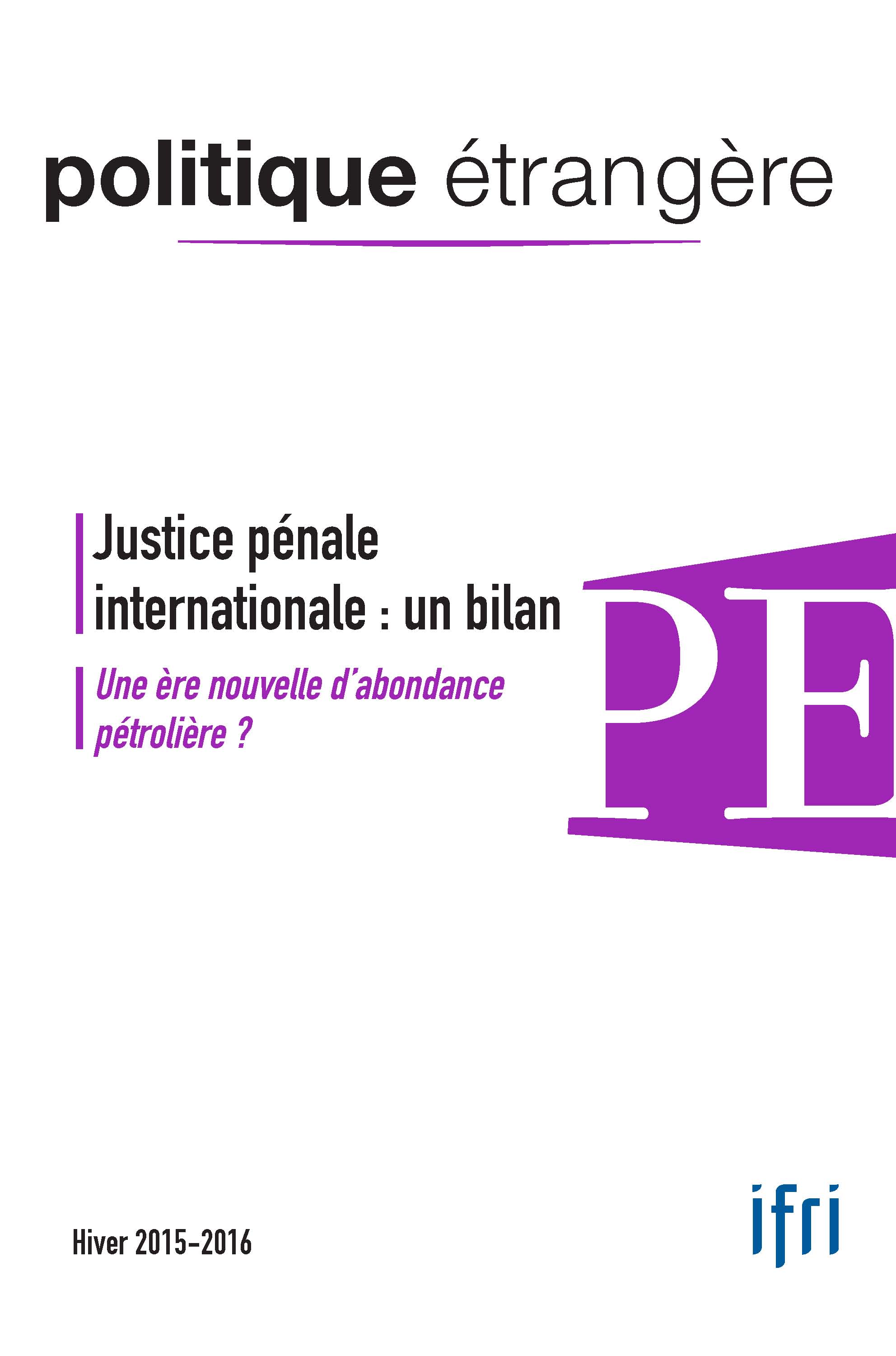International Organizations and Multilateralism
Rhetoric on the crisis of multilateralism is frequent. International organizations (UN, WTO, etc.) remain no less important, while other forums (G20, BRICS, etc.) are asserting themselves.
Related Subjects


Middle East, the new "Great Game"
Will a divided Middle East become the center of a new “Great Game”? The world’s global powers are aligned in it: the United States, falsely tempted by retraction; Russia, establishing its position in an unexpected state of play, France, destabilized by the contradictions of its own policy… In addition are tussles for regional hegemony between Iran, Turkey, and Saudi Arabia.
The Illusion of Convergence—Russia, China, and the BRICS
The discussion about the BRICS (Brazil, Russia, India, China, and South Africa) opposes two narratives. The first considers they play an increasing role in the international relations as the West is loosing power; the other sees the BRICS as a charade. But the key role played by the interaction between Russia and China is an evidence shared by most experts.
Scientific Cooperation in the South China Sea: A vector for China's security diplomacy in Southeast Asia?
In the South China Sea, the field of marine science could be seen as a catalyst for functional cooperation in the region. In reality, it often reflects regional asymmetries and has become yet another domain in which the weight of China is ultimately a destabilizing factor, according to Sophie Boisseau du Rocher.
Japan's Challenges in Public Diplomacy, An American Vision
Japan’s public diplomacy (PD) profile rests almost exclusively on the promotion of its cultural soft power. Today, in the complex geopolitical setting of Asia, in which national rivalries are reviving competing wartime history narratives and territorial disputes, this approach is no longer sufficient to advance Japan’s own national interests and gain favorable opinion abroad. Under the Prime Minister Abe, Japan has begun to transform and upgrade its public diplomacy. However, the country is still facing a number of challenges.


The ASEAN Community: The Reality of a Vision
On December 31, 2015, ASEAN launched its long-anticipated Community with relatively little fanfare. This low-profile attitude surprised many observers: announced as a milestone and the signal of the member-states determination to bring regional cooperation “to a higher plane,” the launch was indeed modest, even imperceptible.

From Financial Diplomacy to Geopolitics of Finance
The financial system has become too complex to be controlled at state level.

International Criminal Justice at 70: Between the Iron and Golden Ages
The modern principle of international criminal justice goes back to Nuremberg and its highly specific historical context. The 1990s marks a decade of renaissance, for former Yugoslavia and Rwanda in particular.

The ICTY Story: A Clear Failure?
Established to hold trials for crimes committed during the Yugoslav wars in the 1990s, the International Criminal Tribunal for the former Yugoslavia (ICTY) has vacillated between its punitive purpose and writing the history of this period.

The Right to Compensation at the ICC: Promises and Uncertainties
The establishment of the International Criminal Court (ICC) has made it possible for the victim to be fully recognized in international trials, with the assertion of the right to compensation for acts of genocide, crimes against humanity, and war crimes.

Assessing the Achievements of International Criminal Justice / A New Era of Oil Abundance?
Born from the ashes of two world wars, the concept of international criminal justice took nearly half a century to become anchored in institutions and legal concepts that are independent of specific conflicts. The International Criminal Tribunal for the former Yugoslavia, that for Rwanda, and the creation of the International Criminal Court, among others, bear witness to the real progress made during the 1990s. This issue of Politique étrangère offers a series of articles that shed light on these achievements and their limits.
Support independent French research
Ifri, a foundation recognized as being of public utility, relies largely on private donors – companies and individuals – to guarantee its sustainability and intellectual independence. Through their funding, donors help maintain the Institute's position among the world's leading think tanks. By benefiting from an internationally recognized network and expertise, donors refine their understanding of geopolitical risk and its consequences on global politics and the economy. In 2024, Ifri will support more than 70 French and foreign companies and organizations.












